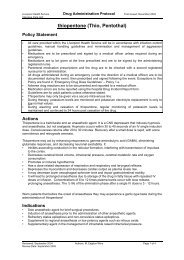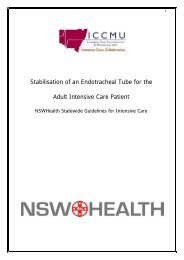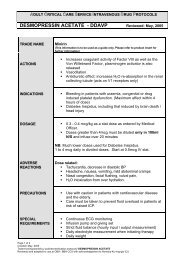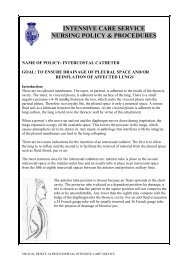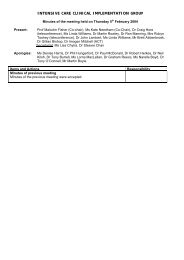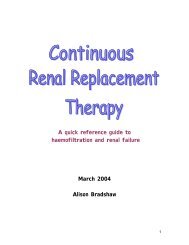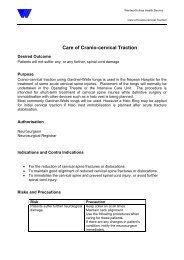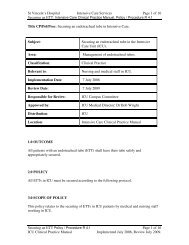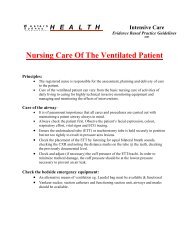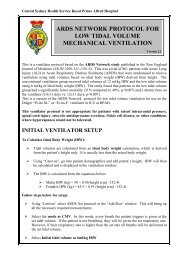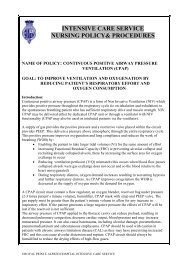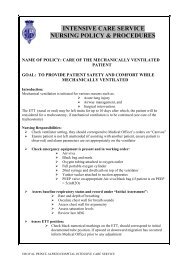Desmopressin - Intensive Care & Coordination Monitoring Unit
Desmopressin - Intensive Care & Coordination Monitoring Unit
Desmopressin - Intensive Care & Coordination Monitoring Unit
Create successful ePaper yourself
Turn your PDF publications into a flip-book with our unique Google optimized e-Paper software.
Liverpool Health Service Drug Administration Protocol First Issued February 2002<br />
<strong>Intensive</strong> <strong>Care</strong> <strong>Unit</strong><br />
Clinical Considerations<br />
• Observe for signs of water intoxication, report immediately.<br />
• Maintain strict fluid balance.<br />
• Monitor electrolytes frequently.<br />
• Monitor urinalysis, including specific gravity:<br />
⇒ SG < 1.005 may indicate need for further investigations as to the cause of dilute urine.<br />
⇒ Rule out spurious causes such as large IV / oral / enteral administration of fluids.<br />
⇒ Rule out drugs which cause diuresis e.g. mannitol or frusemide.<br />
• If SG is < 1.005 and there is a history of cranial injury/surgery; ensure that there is confirmation of<br />
DI with both serum and urine osmolality results prior to the administration of desmopressin.<br />
• Monitor serum and urine osmolality.<br />
• Serum osmolality normal value: 266 – 300 mosm/kg<br />
• Urine osmolality: 300 – 1400 mosm/kg.<br />
References<br />
Carlton, J.B. 1997. The handbook of parenteral drug administration. (4 th . Ed.). William’s Printers. Shepparton<br />
MIMS Online. CIAP: NSW Health Department. 1 August-31 October 2001. http://www.mims.hcn.net.au/<br />
Policy Author(s): M. Edgtton-Winn, ICU – CNC.<br />
Policy Reviewers: ICU Director, ICU – CNC.<br />
Reviewed: September 2004 Authors: M. Edgtton-Winn Page 4 of 4<br />
Review Date: September 2005




